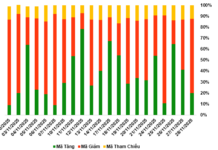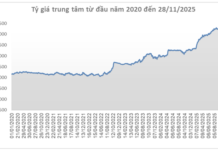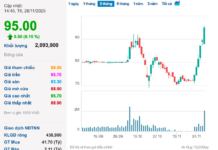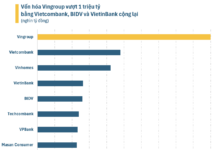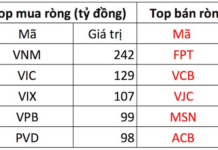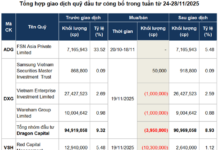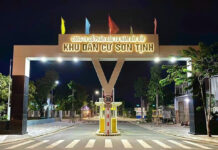On March 12, 2024, in Hanoi, the Water Resources Management Department under the Ministry of Natural Resources and Environment of Vietnam; the Food and Agriculture Organization (FAO); the Water Resources Department under the Ministry of Natural Resources and Environment of Laos; and the International Union for Conservation of Nature (IUCN) jointly organized a workshop to kick off the project “Enhancing Water and Environmental Security for the Ma and Nuen-Ca river basins and related coastal areas in Vietnam and Laos.” The workshop aimed to introduce the project and gather feedback on the project design and implementation plan.
MA AND CA RIVER BASINS FACE MULTIPLE CHALLENGES
Mr. Ngo Manh Ha, Deputy Director of the Water Resources Management Department, Ministry of Natural Resources and Environment of Vietnam, stated that the Ma and Neun-Ca rivers are two transboundary rivers between Laos and Vietnam, located adjacent to each other in terms of geographical position, scale, and characteristics, as well as similar challenges in water and environmental management. The Ma river basin covers an area of 30,328 km2, and the Nuen-Ca river basin covers an area of 31,005 km2.
The two river basins are facing numerous challenges: hydropower reservoirs causing significant changes in flow in both main and tributary rivers in both basins; expansion of agricultural land and deforestation and changes in forest cover affecting flow and sediment load…
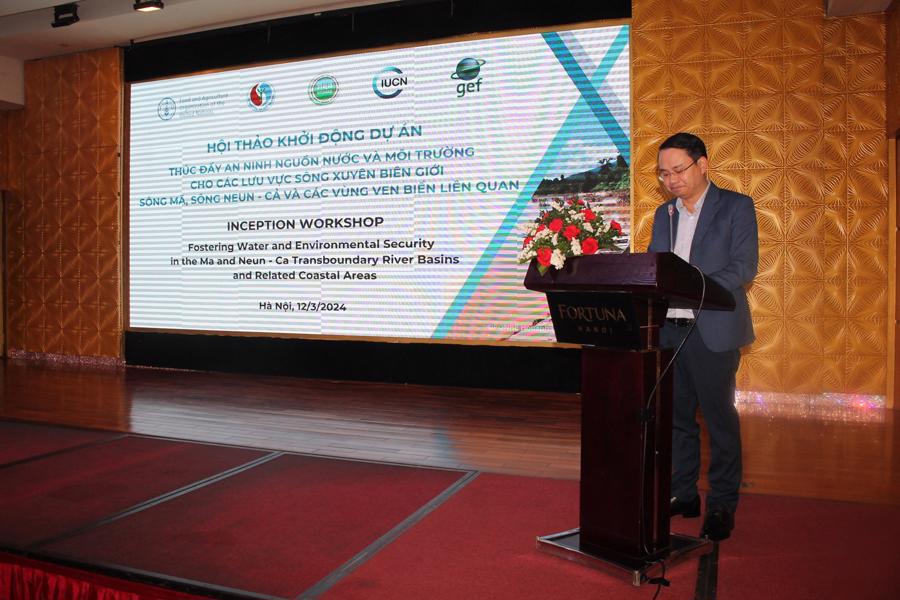
In addition, the increasing water extraction related to population growth and economic development is rapidly affecting environmental flow. Meanwhile, emergency flood releases from dams during extreme flood events also contribute to localized flooding. In coastal areas, saltwater intrusion into coastal aquifers due to excessive groundwater exploitation and rising sea levels.
The continuous development in the two basins, combined with climate change, is affecting coastal areas through deteriorating surface water quality and coastal water, increasing frequency and intensity of flooding and drought.
The bilateral cooperative project “Enhancing Water and Environmental Security for the transboundary Ma and Nuen-Ca river basins and related coastal areas in Vietnam and Laos” was approved by the Government of the Lao People’s Democratic Republic and the Government of the Socialist Republic of Vietnam since 2021.
The project has a total budget sponsored by the Global Environment Facility (GEF) of 8 million USD, of which about 3 million USD will be directly disbursed from the FAO to the Water Resources Management Department of Vietnam (DWRM) and the Water Resources Department of Laos (DWR) to support pilot activities in the Ma and Nuen-Ca river basins.
In addition to the two government agencies of the two countries, the project is implemented with the participation of international organizations: FAO; IUCN. Among them, IUCN is the coordinating agency for the project and provides technical support.
According to Dr. Inthavy Akkharath – Director of the Water Resources Department, Ministry of Natural Resources and Environment of the Lao People’s Democratic Republic, this project is consistent with national priorities and meets the requirements of the new law on water resources management. The governments of the two countries strongly support this project and will closely cooperate with IUCN, FAO, and partners in Vietnam and Laos to address the impacts of climate change and improve the management of natural resources in the Ma and Nuen-Ca river basins.
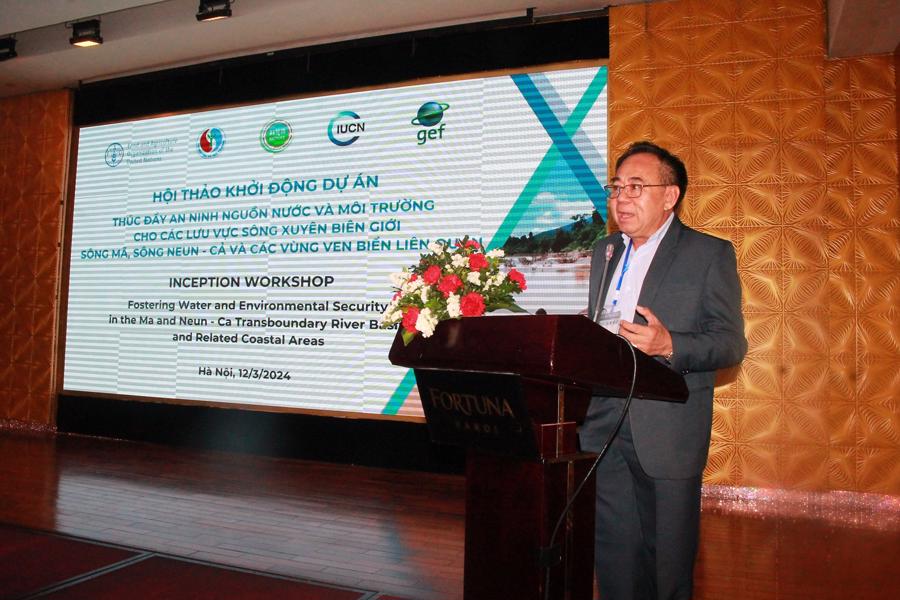
Mr. Rémi Nono Womdim, FAO Representative in Vietnam, said that the project is closely aligned with FAO’s Strategic Framework 2022-2031, promoting the “four betters” – better production, better nutrition, better environment, and better lives.
“By creating favorable conditions for cross-border cooperation on shared water resources, the project contributes to a healthier ecosystem and serves as a foundation for a sustainable food system, improving livelihoods and a brighter future for communities in Vietnam and Laos,” affirmed Mr. Rémi Nono Womdim.
ENABLING CROSS-BORDER COOPERATION AND ACTION
Mr. Jake Brunner, Country Representative of IUCN Vietnam, Director of IUCN’s Mekong River Lower Basin Program, emphasized: “As the implementing agency, IUCN will collaborate with many partners throughout the project implementation process. This includes establishing a cross-border coordination mechanism for surface water and groundwater management collaboration. This will maximize the economic value of shared water resources in the two basins and minimize flood, drought, and salt intrusion risks.”
“The objective of the project is to help Vietnam and Laos address issues of freshwater resources management and ecosystem health in the transboundary Ma and Nuen-Ca river basins by creating an enabling environment for cross-border cooperation and action,” shared Ms. Rosanna Keam, GEF Water Program Technical Director.
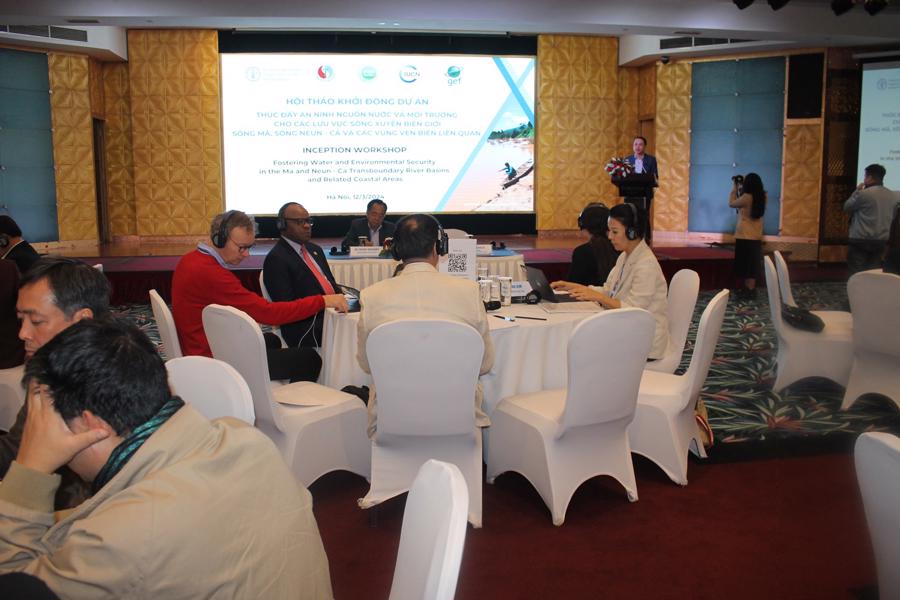
Ms. Rosanna Keam said that the project “Enhancing Water and Environmental Security for the Ma, Nuen-Ca river basins and related coastal areas in Vietnam and Laos” is designed to achieve tangible results.
Outcome 1: Establishing agreement among countries on important transboundary concerns, including climate change and variability, achieved through mutual understanding – enhanced cross-border collaboration, providing the basis for coordinated actions.
Outcome 2: Ensuring water security and environmental sustainability, enhancing forecasting capacity in both basins and surrounding coastal areas through cross-border cooperation frameworks and information exchange mechanisms.
Outcome 3: The two countries jointly develop a common action plan based on practical pilot results of approaches, policies, practices, and environmentally friendly land and water management technologies, and share outcomes and experiences.
Outcome 4: Promoting the process of reversing degradation in the Ma and Nuen-Ca river basins through the commitment to maintaining joint cooperation mechanisms, implementing reforms, and priority investments of the two countries.
Outcome 5: Ensuring the project’s sustainability through capacity-building activities for relevant agencies, units, and established cross-border cooperation mechanisms within the project framework. At the same time, delivering benefits at the global and local levels through the sharing and dissemination of project implementation outcomes and lessons learned.





